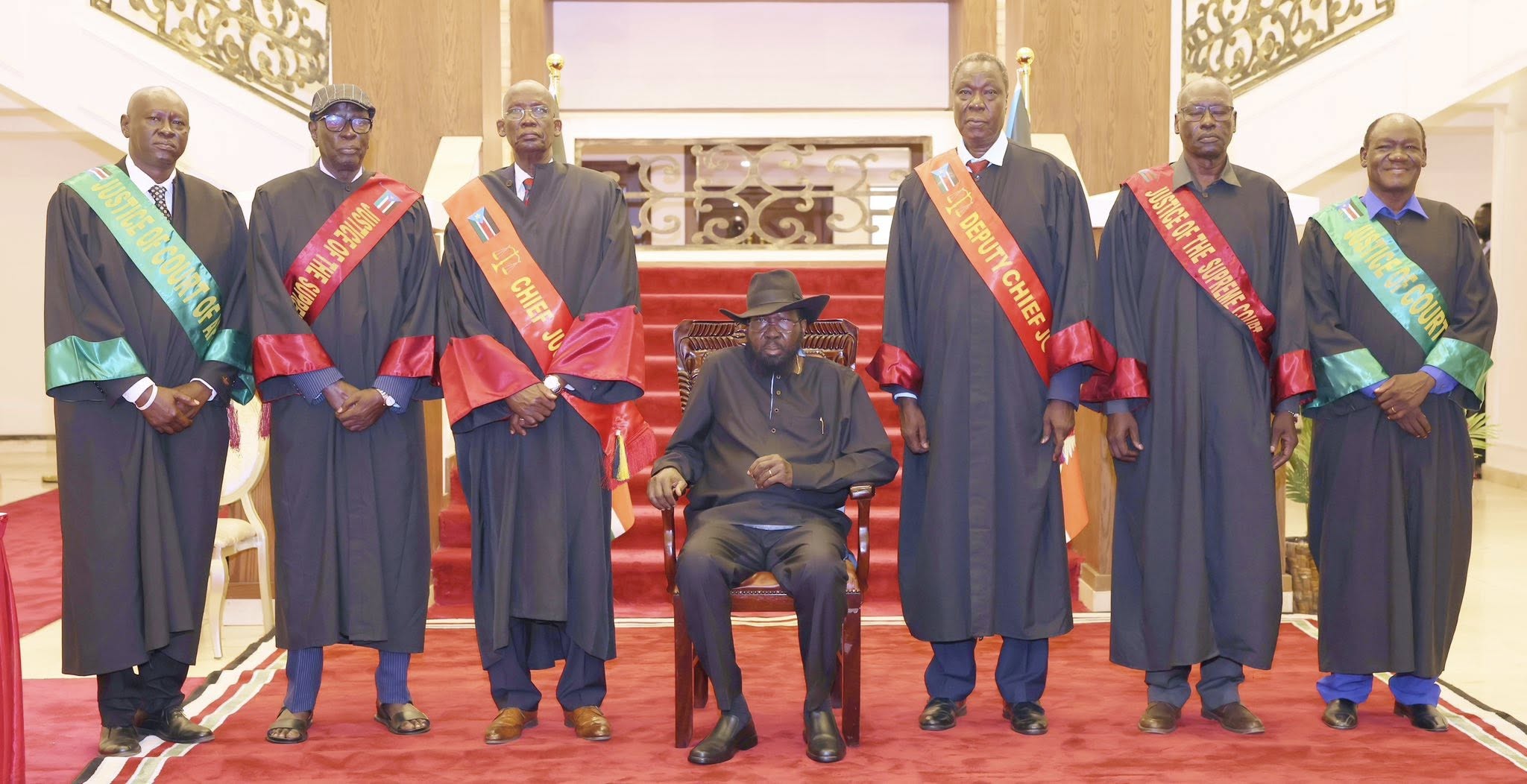Kiir swears in new Chief Justice urges sweeping judicial reforms


Dr. Baak assumes the nation’s highest judicial office alongside his deputy, Laku Tranquilo Nyombe, with the oath administered by Supreme Court Justice Dr. James Alala Deng.
In his address, President Kiir underscored the judiciary’s role as the “foundation of justice and stability in any nation,” emphasising its centrality to fostering peace and development.
He highlighted pressing challenges facing the judicial system, including prolonged delays in court proceedings, limited access to justice in rural areas, and inadequate enforcement of court rulings.
Mr. Kiir urged the judiciary to uphold its independence, remain free from political interference, and prioritise transparency and accountability.
The President called for comprehensive reforms to address the backlog of pending cases, advocating for timely justice delivery, ethical training for judges, prompt salary payments, and stringent anti-corruption measures within the legal system.
“A credible legal system is vital for our nation’s progress,” Kiir stated, as quoted by the Presidential Press Unit.
In his acceptance speech, Chief Justice Baak acknowledged the significant challenges ahead, particularly the extensive backlog of unresolved cases. He appealed to the government for robust support to tackle longstanding judicial issues.
Government officials described the appointments and President Kiir’s directives as a potential turning point for South Sudan’s justice system.
Mr Baak takes over from Chan Reec Madut, a judge who has been at the helm of the country’s judiciary since 2011 before his relief through a Republican Decree in May 2025.
Madut faced significant criticism during his tenure, including the judiciary’s failure to address a massive backlog of unresolved cases, leading to significant delays in court proceedings. This inefficiency contributed to public frustration and eroded trust in the judicial system.
Critics, including legal practitioners, accused Madut’s administration of being susceptible to political interference, undermining the judiciary’s autonomy. This perception was fueled by reports of executive influence over judicial processes, which further damaged public confidence.
It remains to be seen if Dr Baak will live up to his ability to tackle the challenges above as the Chief Justice commences a new trajectory.
sudanspost.com